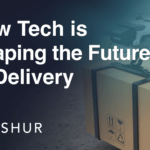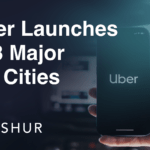
Pride beyond the parade: diversity & inclusion at INSHUR
Written by Mat Valencic
The history
It was 28th June 1969 in New York. The NYPD has just raided the Stonewall Inn, a popular LGBT venue in Green Village, Manhattan. Despite police raids on gay bars being a routine in the 1960s, the situation at the Stonewall Inn quickly escalated and became violent. Tensions between New York City police and gay residents of Greenwich Village erupted into more protests the next evening, and again several nights later.
The riots are widely considered to be one of the most important events leading to the modern fight for LGBTQ rights in the United States. A year after the uprising, to mark the anniversary on June 28, 1970, the first gay pride marches took place in New York, Los Angeles, and San Francisco. Every year since then, various events are held during this special month around the world, as a way of recognising and celebrating the LGBTQ social and self acceptance, achievements, legal rights, and pride.
50 years later
This year we are celebrating the 50th anniversary of the first Pride march. Due to the ongoing Covid-19 measures, most events and celebrations have either been postponed, cancelled, or moved online. But there’s another significant difference this year.
The sustained, nationwide eruption of Black Lives Matter protests is inspiring a deeper understanding of the very meaning of Pride Month. The parallels with the Stonewall riots have already been drawn – not least because the 1969’s riots were largely led by LGBTQ people of color (namely Stormé DeLarverie, Marsha P. Johnson, and Sylvia Rivera).
The role of a “People person” (& utilising my privilege)
I have been working in People Operations for a number of years now and the importance of equality, diversity, and inclusion (EDI) has always been at the heart of everything I do. Policies alone are not enough to build a diverse and inclusive workplace, and inclusion shouldn’t, and mustn’t be, a box-ticking exercise.
We need to allow everyone to be themselves and this is especially true in the workplace. Authenticity is crucial. Contrasting personalities, differing histories, and diverse backgrounds should not only be expected but encouraged.
A study published in the Journal of Social Issues revealed that professionals who try to conceal some of their core characteristics, such as being lesbian, gay, bisexual or transgender, or having a history of poverty or illness, end up hurting their careers.
Working in People Operations gives me the privilege to be able to define the EDI policies for a business, but it also gives me the responsibility to make sure these policies become the values and culture of the business and their people.
Meeting INSHUR
When I was looking to take the next step in my career, I was looking for a new role where I can actively help make the difference while continuing to learn. It was important to me to find a workplace where people come first, diversity and inclusion are thought about and acted upon, different perspectives are actively encouraged, and where a company’s culture and values align with my personal beliefs.
I have recently accepted a new role at INSHUR – an insurtech start-up based in Brighton and New York. And while Covid-19 pushed my start date into the future, I was keen to connect with the People Team prior to my start date and get a feel for the company’s culture and values. It was at the end of May and the team were busy planning for the Pride month.
We discussed EDI in the workplace and how the support for the LGBTQ and all other under-represented groups is something they take very seriously every day of the year.
One of INSHUR values is ‘We are always learning’. They bring that to life with regular opportunities for the whole team to increase their understanding and awareness of equality and the issues our communities face.
Most recently, they were joined by The Other Box who delivered an insightful learning session on D&I, to help identify and combat own biases and learn about allyship. (Really sad I missed out on that one!)
Despite things being different this year and everyone working remotely, the People Team are determined to create a platform for their employees to be able to learn and celebrate Pride month.
Aside from the already mentioned session, this June INSHUR will also join Out & Equal, the premier organization working exclusively on LGBTQ workplace equality. Through their worldwide programs, Fortune 500 partnerships, and annual Workplace Summit conference, they help LGBTQ people thrive and support organizations creating a culture of belonging for all.
To help employees with the resources on the topic of LGBTQ, the INSHUR People Team have also compiled a list of movies, books, podcasts, TV series, and more. The list is shared on a company’s shared drive, so everyone can access it and add additional resources.
From the start of the lockdown, the team are organising a quiz night for all the employees at the end of each month. This month’s iteration will be Pride-themed, combining fun and games with facts and learning.
Last but not least, they have created a number of Zoom meeting backgrounds and social media banners with Pride-theme designs for their team to use, if they want to express their pride or support. Fun!
All in all, it’s been really encouraging to see the level of effort INSHUR invests in making sure their employees are engaged in conversations about privilege, bias, D&I, etc., while having access to the resources they need to educate themselves and grow. And believe me, their Slab wiki is a masterful knowledge base!
How can I help?
Pride is a celebration of the progress we have made, but also a reminder of how much there is still to be done in recognising diversity and equality. We need to actively fight discrimination, racism, and bias within us and around us. It’s down to each one of us to either perpetuate the cycle, or start breaking it.
Whether the Pride celebrations are your thing or not, the fight doesn’t end there. Start thinking about the difference you can make for the LGBTQ community – educate yourself and your peers, speak out and challenge the views you don’t agree with, and help create an inclusive environment.
We need to get comfortable talking about it. Conversations should happen at home, on social media, in schools, and in the workplace. It’s as much our personal responsibility as it is a corporate responsibility.
Take away
We can only win this battle if we stand together. Become an ally. Even if you are not LGBT or Q, you can use your privilege to support LGBTQ people and promote equality. Allies stand up and speak out even when the people they’re allying for aren’t there. In other words, not just at Pride parades.
If you are starting to think about what you can do to celebrate Pride at your workplace this June, this article will hopefully give you some ideas. Remember to have fun, but don’t forget what LGBTQ Pride is about: appreciating LGBTQ community, equality and diversity, while remembering the progress that has been made and celebrating love in all its forms.
Love is love.
Mat
P.S.: For a bit of fun
This is the nerdiest way to celebrate Pride and I only just discovered it!
If you’re using Google Sheets, enter each of the letters P R I D E into the first five cells of a Google Sheets document and the columns instantly become rainbow colored! 🏳️🌈
Tip: Works on desktop only. You can hide the first row, so that you can use the spreadsheet without the colors disappearing.






